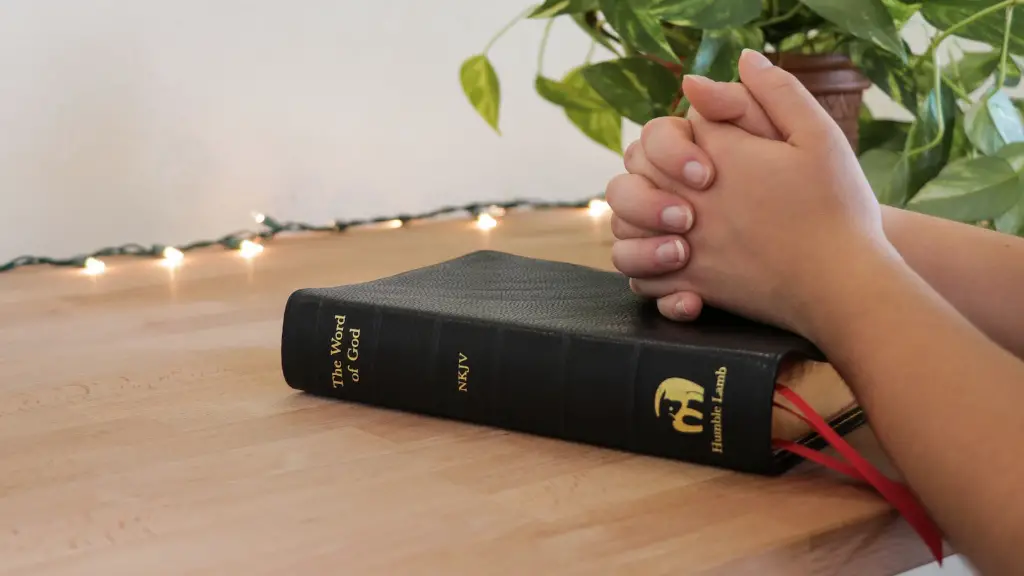Introduction
The Bible is a treasure trove of wisdom and information about God’s commandments, which Christians seek to live by. One of the most important of these commandments is the Sabbath, which strictly forbids people from doing any work on what is considered the Holy Day. This day is also one of the most debated, and has caused controversy between denominations, as well as within people’s personal faith. For example, the practice of keeping the Sabbath is seen differently in Jewish and Christian faiths, and this difference in how the Sabbath is practiced has caused many to ask: What does the Bible actually say about the Sabbath?
Overview of the Sabbath
The Bible speaks very plainly, and specifically, on the matter of keeping the Sabbath. First and foremost, the Bible declares that the seventh day is reserved for worshipping God. God called the seventh day “the Sabbath” after he finished creating the world in six days. On the Sabbath day, no labor is to be done, with some exceptions such as caring for animals, the ill, and the poor. In addition, the Bible calls for people to remember the Sabbath and keep it holy. For those who keep the Sabbath, their reward is that God would bless them with a righteous, peaceful, and obedient lifestyle.
Why it is so Important
Though the day is often a source of contention between denominations, it is also symbolic of something much greater and sacred. For Christians, maintaining the Sabbath is divinely mandated by God. As such, it is a day that should be kept by faith and devotion, not by convenience or comfort. Keeping the holy day is meant to spiritually connect with God and reflect on one’s own moral capacity, faith and transformation. The Sabbath is a day free of labor because it is meant to give thanks and honor God, not perform the vanity of men.
Different Perceptions of the Sabbath
The different Christian denominations have varying interpretations of maintaining the Sabbath. According to the Catholic Church, the Sabbath is a special day of prayer and rest that honors both God and creation. Many evangelicals also recognize the Sabbath as a day of reflection and celebration. However, some Protestants believe that the day is not as important as it once was, and that modern times have diminished the religious observance of the Sabbath.
Saturday or Sunday
Though the Sabbath is a special day for all religious denominations, the way in which people observe it differs considerably. Most Christians recognize the Sabbath as Sunday, while others hold strong to observing it on the traditional day of Saturday. Orthodox Jews, as well as Seventh-Day Adventists, also keep Saturday as their Sabbath day while rejecting the notion of Sunday-worship.
The Biblical Foundation
The Bible is clear in its commandment of keeping the holy day. In the Old Testament particularly, the Hebrews are instructed to keep the Sabbath day as a special memorial for their deliverance from Egypt and as a reminder of God’s divine power and truth. Additionally, Jesus and the Apostles were very clear in their instruction to observe the day of the Sabbath, and pilgrims in the New Testament often gathered to hear Jesus preach the Good News. Despite the varying perceptions of the Sabbath, there is no doubt that the Bible commands its observance.
What the Bible Says About Breaking of the Sabbath
The Bible is steadfast in its commands regarding keeping the Sabbath. Deuteronomy implies that those who break the Sabbath day should be stoned, and Jesus himself makes multiple statements condemning those who break God’s commandments. He even famously used his healing powers on the Sabbath to prove that doing so was permissible – if for the benefit of others. Still, the consequences for breaking the Sabbath are very severe, and Pope Leo X issued a decree in 1517 that required those who broke the Sabbath to be reprimanded in a very serious manner.
The Consequences of Not Following the Sabbath
Those who do not obey the commandment of keeping the Sabbath have severe spiritual consequences. For Jews, it could mean the loss of their covenant relationship with God, and for Christians, it could mean being at odds with the teachings of Jesus and the Apostles. Furthermore, any work or business done during the Sabbath could lead to the deterioration of one’s moral capacity, and cause them to lead a life that is neither righteous nor Godly.
The Sabbath’s Importance in Everyday Practice
Though there is a great deal of debate and contention surrounding the practice of maintaining the Sabbath day, the Bible is clear and steadfast in its policies and commandments. The importance of the Sabbath lies in the spiritual and practical implications it has, as it serves as a reminder of God’s blessings, a time dedicated to spiritual reflection, and the maintenance of righteous and moral conduct. Therefore, adhering to the commandment of the Sabbath, whatever day it may be, is an important part of living a faithful life.
Conclusion
In conclusion, the Bible is unambiguous in its commands and instructions for keeping the Sabbath. The day is special for all denominations of faith, as it allows people to dedicate a day of prayer, reflection, and worship to the Lord. Though there may be disagreements in how and when to honor the Sabbath, its importance should not be overlooked. As such, faithful followers should always seek to observe the Sabbath day in whatever way they deem appropriate, so that they can honor the Lord and maintain a righteous and moral life.


